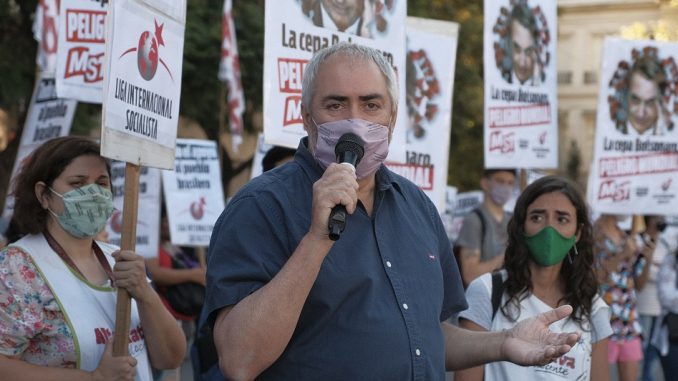
In just a few days, this internationalist event will begin. It will take place in Buenos Aires and have representatives from all the continents. In a world still traversed by the consequences of a tremendous pandemic, revolutionaries are preparing to face the challenges of the next phase of the political and class struggle. In this interview, Alejandro Bodart, coordinator of the ISL and leader of the MST-FIT Unidad, answers a series of questions relevant among the militants and vanguard of the left.
In a few days the 1st World Congress of the ISL will be held. Can you tell us about the origin of this project? How did it begin?
The ISL was formally born in May 2019. It is the confluence of the Anticapitalist Network, an organization that brought together different revolutionary socialist parties, including the MST, and the comrades of the SEP of Turkey. We were later joined by the comrades of The Struggle of Pakistan and other organizations, leading to what it is today, an organization that brings together comrades from 5 continents and more than 25 organizations worldwide. It is a project of regroupment of revolutionaries with the intention of learning to work together, coming from different traditions, and to gradually shape a new revolutionary tradition with the implementation of a healthy method and a principled program.
After the fall of the Berlin Wall, there was a period of ideological offensive by imperialism that claimed that “capitalism is insurmountable and socialism failed.” How has the world taken shape since then?
The fall of the Berlin Wall and everything that followed was a very contradictory period. On the one hand, there was the loss of the countries where the bourgeoisie had been expropriated and a process of capitalist restoration began that had a negative impact on the consciousness of the mass movement and was used by imperialism to launch the campaign that capitalism was the only possible system and that socialism had failed. However, it also had another component that many currents of the left minimized or did not understand, which was the fall of Stalinism, the most monstrous apparatus that arose within the working class, which was responsible for the greatest defeats that have occurred since the triumphant October Revolution (1917). This opened a new period in which the possibility of overcoming the crisis of leadership began to be more possible than before. Thirty years have passed since then, this is a completely different world. What predominates is the global crisis of capitalism that has different aspects: the economic, environmental, health and social crisis that opens up many, many, many possibilities. The post-pandemic world, the period that we are heading into, will once again bring all the contradictions to the surface. After the crisis of 2008 and the combination with the pandemic, a period opens in which the revolution and the counterrevolution will meet again and we are heading into big events of the class struggle for which we must prepare.
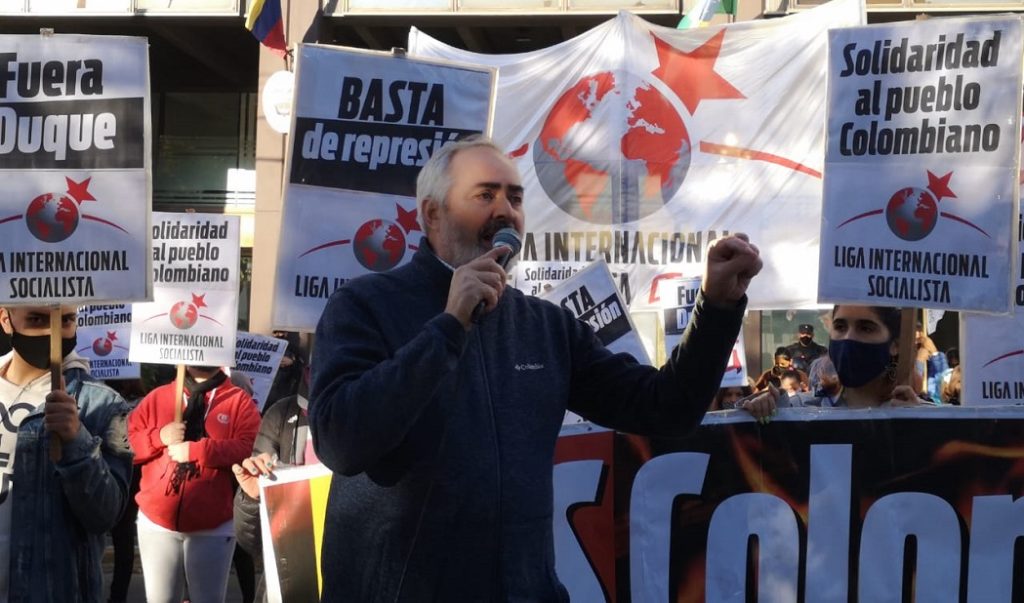
Outside of that, let’s say “objective”, panorama, of the political process and class struggle, you normally refer the crisis of the currents of international Trotskyism aa a starting point in certain definitions of the ISL project. Could you comment on what analysis you make?
Trotskyism, which is the most advanced current of Marxism, has experienced a very important crisis since the death of its founder Leon Trotsky and the triumph, shortly after, of Stalinism over Nazism. This opened a period of great marginalization of Trotskyism, in the context that Stalinism had strengthened. The currents that remained to maintain that legacy, quickly, through tremendous political and methodological errors, the analysis of which we won´t go into here, led to a disintegration of the International, of the Fourth International, into different tendencies that then each developed along its own path. They acquired different traits: either sectarian, to protect themselves from a very hostile environment, or opportunistic to look for shortcuts. Over the years, some of these tendencies assembled international tendencies, which attempted to be hegemonic projects: small internationals that believed themselves owners of the truth, and were in general built in competition with others. That period, which one cannot analyze today with “Monday´s newspaper,” without seeing all the contradictions of the time. In that context, Trotskyism had to swim very much against the current, which has its virtues and also many flaws. But those international projects, linked to a “mother party” and to small currents that tried to build themselves around completely hegemonic conceptions, are finished. Today it is evident that, if we want to overcome these problems, we must work from the confluence of the different traditions that have been formed, to see if a new tradition can be forged that recovers the best of each of our tendencies and assumes the task of overcoming that stage. The tendencies that do not understand this and continue to work for “mother party” projects, believing that construction involves convincing every one else of their own tradition, and that all other traditions are centrist, opportunist or sectarian, and do not have a policy to converge, are entering a crisis as we are seeing in many organizations. The same is true of organizations that, due to the diaspora, transformed into national-Trotskyist organizations. The ISL was born to attempt to overcome that stage, without self-proclamation. It is a small contribution to attempt to converge between different tendencies, to overcome the mother party stage and advance to an organization in which we can coexist, even with nuances, with some differences, while we build mutual trust, in order to build that tradition, within the framework of a method, of healthy work, of a real democratic centralism, recovering the Bolshevik tradition that was later distorted by Stalinism (even many Trotskyist currents have absorbed that unhealthy method, more linked to Stalinism than to Trotskyism itself). Furthermore, the ISL is based on a program of class independence, with our prow pointing towards the workers´ government, workers´ self-organization, permanent mobilization and the socialist revolution.
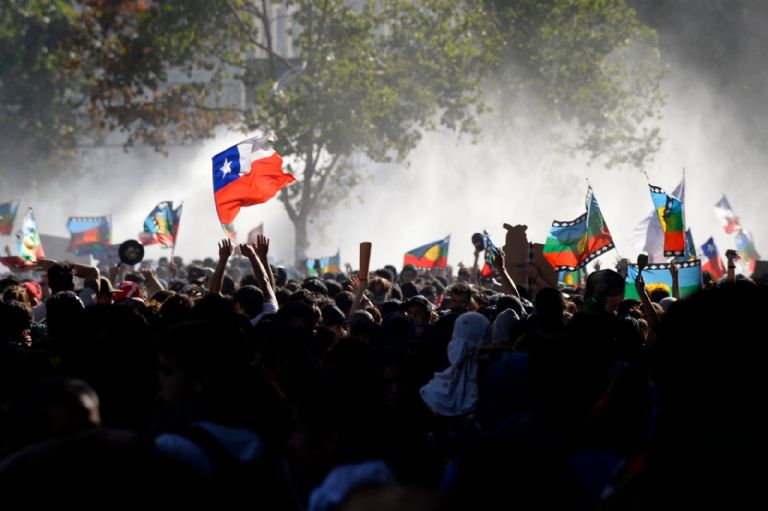
More underlying, conceptual, issues. You have written as a definition that we are going through a stage in which “the world revolutionary process is normalizing.” For the new working class and youth militants of the MST and the ISL: could you explain this?
The issue of “normalization” is a complex issue that, of course, in a short time is difficult to pin down, it is often subject to unilateral interpretations. The crisis of revolutionary leadership did not impede the worldwide rise in struggle, but it produced processes such as the expropriation of the bourgeoisie with the peasantry instead of the working class playing a preponderant role in many places; and in others, although the proletariat was present, it did not have a revolutionary leadership, but petty-bourgeois leaderships or Stalinist leaderships, at its front. However, the revolutionary process went far beyond what had the classic model indicated, which was the model of the Bolshevik Revolution (1917), which was possible because the working class was the social subject and the Bolshevik revolutionary party was the political subject. That model was broken in the postwar period and has given rise to many debates, many discussions, many misinterpretations. Now, I believe that the process is being normalized again and that, given the fall of Stalinism, given the crisis capitalism is in, today it is very difficult or almost impossible, we could say (though we should never say totally impossible), to defeat the bourgeoisie in a country and much less internationally without the working class mobilized and a revolutionary party. In this sense, we are returning to what was the norm in the first postwar period: since there were no revolutionary parties, revolutions were lost. In the second postwar period, this abnormality occurred and became the rule more than the exception. This highlights the need to have a policy towards the working class today, to strongly reaffirm the strategy of building a revolutionary party. Today, because the working class is in the process of reorganizing and still has a hard time intervening as a class, and this in turn makes party building difficult, and not having a party also slows the rhythm of recomposition of the working class (in other words, they feed each other), many fall into skepticism and look for shortcuts. Others become skeptical and fall into sectarian propagandism. Well, I think that´s not the way, that we have to be confident that this is the beginning of a normalization process in which the working class will gradually re-learn, it will recover its organizations, it will play a more active role. Today the working class is more numerous than ever, but it is a young, inexperienced working class that has Stalinismin its past, that has lost much of the tradition that led it to play a decisive role in the first and second postwar periods. And in this process, progress will also be made in the construction of a revolutionary party, because there is social polarization and just as there is a right that is growing, and we must pay attention to it, in turn there is also space for the left. And as we can see here in Argentina, that space can be capitalized and much more could be done. In that sense, I believe that there is a return to normalizing the world revolutionary process, taking as a point of reference what we all have as a historical reference, which is the Russian Revolution and everything that happened there.
There are debates on the world left, and also in Trotskyism. For example, when you talk about left-wing projects on a national scale in Argentina, you define three. At the world level, does this pattern repeat itself?
We could say so, that there are sectarian projects, opportunist projects and ours that tries to find a way out, though not exempt of errors. It´s no more than outline, in any case, because you then have to look for logical particularities that exist in each case. However, making an outline, we can say that skepticism, had led, on the one hand, to sectors that fall into looking for shortcuts because they do not believe that socialism is possible in the historical period in which we live, but see it for an undefined future; many don´t even believe it possible in the future. And this leads them to shortcuts and to seek strategic alliances with reformist sectors, to abandon the construction of the revolutionary party, to dissolve into broad, undefined parties or to confuse revolutionary processes with their leaderships and therefore follow many of the nationalist, left or progressive nationalist leaderships, or a “new left” like Siryza, and so on. I am speaking, mind you, of Trotskyist currents. If we expand to the left more generally, I believe that the popular frontist left is integrated in many cases even into bourgeois projects, how we are seeing, for example, in our country with the leadership of the Communist Party or the RCP (Maoism) that have joined a front commanded by the traditional bourgeois party of Argentina, which is Peronism. Or in the United States to the Democratic Party, beyond operating in the DSA. But they are all motivated by this point of seeking alliances with the old theory that there are no conditions for the proletariat to assume a leading role, so it has to seek alliances in sectors of the national bourgeoisie, which is complete nonsense that leads nowhere, as shown by history. Or as I was saying about not believing (in the revolution), seeking merely democratic changes or radical reforms, which do not happen anyway, and abandoning the strategy on that path. And there are other comrades who do not abandon the strategy of building the party, essentially Trotskyist currents, but often fall into the sectarianism of protecting themselves from the mass movement. In this sense, they are also an expression of skepticism, which is channeled through trying to maintain a “purity” that makes them inert to intervene in the mass movement. Though different to the others, they often fall into the same problem of confusing the leaderships with the processes, and do not intervene in the processes. In any case, these debates have a similar root at the national level or are even deeper. This is often seen in Trotskyism, which has ideologically strong positions, but sectarianism leads them to not adopt policies to take advantage of an opportunity. Then there´s us who are trying, and who are obviously not the only ones. There are comrades everywhere, that’s why the ISL exists, because we are finding comrades everywhere who try to not fall into skepticism, to avoid falling into opportunism or looking for shortcuts, or into the sectarianism of not participating in the mass movement of and always having tactical policies without losing the strategy. Although there are debates and discussions, logically, the ISL has been formed because in a lot of places there are many comrades who come from traumatic experiences in international organizations that have had bureaucratic vices, vices of national-Trotskyism, of single party hegemony and who have advanced reflecting, and this is the confluence that allows us to form the ISL to combat those deviations of different types and see if in a period of time we can make a great International based on a great regroupment, a great revolutionary program, a healthy method that allows us to merge the best traditions of each and return in a sense to what Bolshevism was. Because that is what the possibility of creating the paths to overcome the crisis of leadership is all about; paths that will, of course, advance with the class struggle if the proletariat responds with more and more strength and energy, if along the way the democratic organisms are created for the working class to rule and in parallel to that, so is the party. These issues are debated because there are complications. There is a very favorable situation, a great global polarization, and at the same time many contradictions that we need to discuss how to overcome.
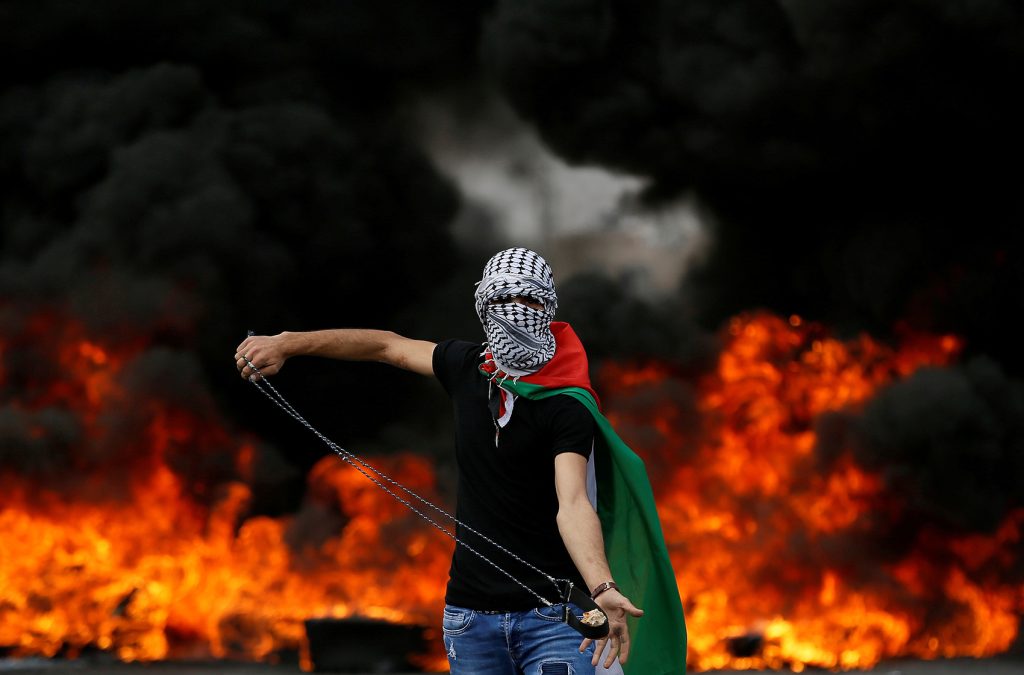
It is clear that capitalism reached the pandemic in a bad shape, unable to overcome the crisis of 2008, and then COVID deepened everything. What is the bourgeois and imperialist agenda for the post-pandemic moment?
The crisis of capitalism is very deep. It can be compared to the crisis of the 1930s, or that of the late nineteenth century. It is a structural, systemic crisis that, as I said before, encompasses different aspects. Imperialism has lost strength. It believed that after the fall of the USSR it was going to become increasingly hegemonic and stronger, but the weakening it suffered by losing a partner that gave it some control over the mass movement, which was the role played by Stalinism, made it assume all the contradictions and it was weakened. And a competitor has emerged, which is China, that questions its hegemonic role and that has generated an inter-imperialist rivalry, which on the horizon may pose the alternative of a confrontation, even in the military field, although today it is in the economic field. There is a preparation of the two superpowers in that sense. Although there is a rising power that is China and one that is weakening, and has lost the hegemonic role. With Trump, the problems for imperialism became more acute. Biden tries to reassemble a power bloc to confront China and try to contain the rise, but the withdrawal from Afghanistan shows the difficulties it has in responding to an increasingly conflictive world. But they will try. They have put billions and billions of dollars at the service of saving large corporations in crisis. Now they are going to try to make the people pay for the cost of all this, with more super exploitation and more misery. That will be the agenda that will prevail. We are seeing the closures of factories and companies continue. Capitalism is at a stage where it increasingly evolves towards financial speculation at the expense of production. And that is what is behind the crisis itself, which is fueled, because many of those billions of dollars that have been invested, instead of going and strengthening production, continue to go to speculation. And there are thousands of companies, even the most important ones, that are “zombie” companies, because they live on forged balances, to sustain themselves precisely from all the contributions that the States give. There is a tremendous indebtedness of the States, of the companies and, in general, of the people. We are at a time when the economic crisis, far from having been overcome despite some rebounds, continues its course. And there is going to be a counteroffensive of labor flexibility, of an attempt to impose austerity plans to pay off debts, while wealth accumulates more and more in fewer hands. And there is a sector that is betting on the far-right as a way out, because it is aware that it won’t be able to achieve any of this, nor will it be able to stabilize and stop the decline of the rate of profit, if it does not manage to defeat the mass movement. And that is why there are sectors that bet on the far-right, and expressions like Trump, Bolsonaro, Milei, Espert, Vox in Spain grow from this. There is an attempt to strengthen them. Now, in perspective, they are going to collide with the rise of the mass movement, although there is going to be a growing polarization, and it is difficult for it to be dragged into a situation of greater misery or to the barbarism they offer, without a fight. Like the youth, who play a fundamental role, not only in social struggles, but also in democratic struggles, because in the road of applying all these plans, governments become increasingly authoritarian and repressive. In turn, climate change is also leading generations and generations to confront it and mobilize. The same happens with the exacerbation of the problems against women, against the LGBTQI community, religious sectarianism. We are going to an increasingly conflictive world, where in turn rebellions and revolutions will tend to generalize and collide, and the confrontation between revolution and counterrevolution will become more and more clear.
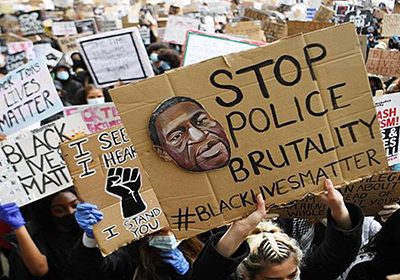
Returning to the objective situation and the political and class struggle. The ISL defines a stage of acute polarization as a current feature that generates emerging expressions from the right and space to the left. How do we capitalize that “space”? Are there global trends to identify?
In the world, social polarization is growing, and there is a dilution of the center and the traditional political forces, which drain to the left and to the right. And this has to do with the polarization that is going to tend to occur in the class struggle. We are entering a world where the extreme right is going to grow, possibly because it is the one that has a program to bring capitalism out of the crisis: lead the working class to barbarism, with loss of conquests, of the few that remain, and advance in taking away rights and super exploitation. But at the same time there is another trend, which even feeds on this opposition, which is a trend to the left. And of course, where there are revolutionary forces, as in Argentina, it can end up channeled into firmer expressions programmatically, such as the Left Front. And where there are none, it still advances to expressions such as that of Pedro Castillo, who is the most radical of the political spectrum (in Peru), despite the fact that his inconsistencies quickly come to light. Or in Chile, this polarization is embodied in forces like the Broad Front, who already betrayed in the revolutionary process. Or a Petro in Colombia. But it is a turn to the left that also fuels the possibility of forming revolutionary organizations, which will have an expression in the class struggle: more rebellions, more confrontations. In turn, at the level of the working class, the process is still very incipient. It is hard for the working class to come out as a class. And this makes it difficult to form democratic organs. It still has trouble coming out, still the weight of the bureaucracy and the treacherous leaderships, and the economic crisis itself, generates tendencies that make the working class not develop its maximum potential. It takes part in struggles, even rebellions, but more on an individual level. As I said before, this creates problems, even for the building of the revolutionary party. But at the same time, as there is a space to the left, the formation of a revolutionary party can help this process in the working class to develop and feed each other. That is why the strategic task remains the question of revolutionary leadership and taking advantage of these trends. There are organizations that tend only to see only what is happening on the right. Some use the rise of the right to promote popular front politics, and so that an independent left does not emerge. The task of the revolutionaries is to confront the right, but not to give in to the “siren songs” of unprincipled unity. Instead, to remain independent from the different bourgeois factions. We must understand that even in the confrontations that are going to take place between opposing camps in this inter-imperialist dispute, there is no progressive camp and therefore a third, independent position must be maintained. It is necessary to confront not only the classic capitalist governments of the right, but also the fake progressives, even the nationalists that quickly become reactionary and go against the working class and the popular sectors. Because it is only the only way for a revolutionary embryo to emerge that at some point can define the situation in favor of the working class.
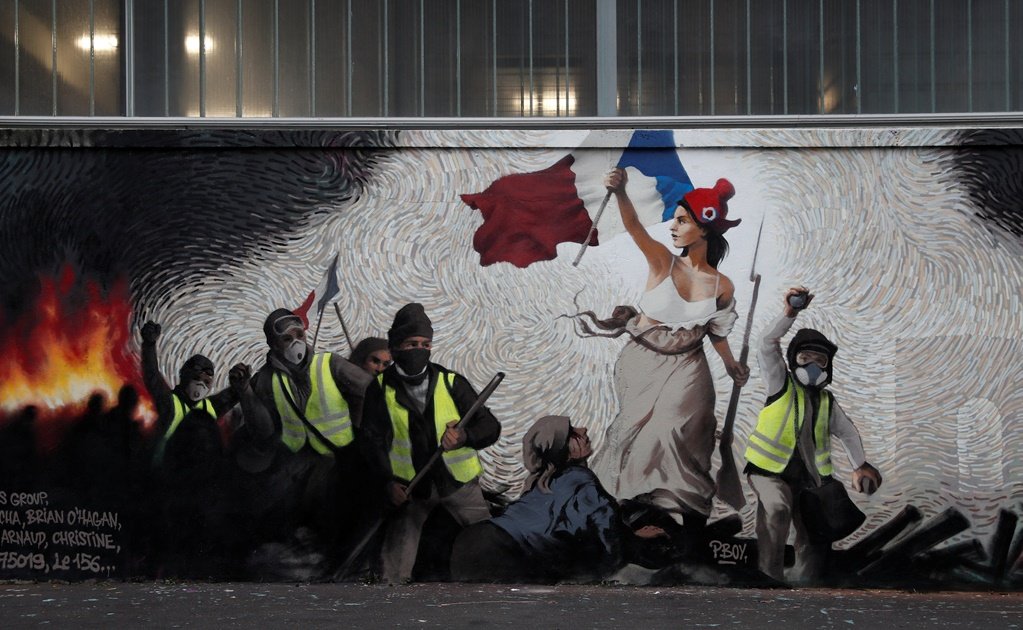
Well, to close. What expectations do you have for the 1st World Congress, what objectives? What are you expecting?
We had the objective of holding the 1st World Congress in May of last year. The pandemic forced us to postpone it and we have high expectations that the leap we have been taking between the Conference, which kicked off the ISL (May 2019, Barcelona), and this Congress, will be consolidated and that the new organizations that have been integrated will allow us to advance in the construction, in the elaboration, and in the consolidation of this project. We also have expectations that many organizations that are going to come as observers will advance in their integration and that the Congress itself will allow another leap and go on the offensive to link up with other processes. The ISL has been part of the main processes of the class struggle that have occurred in Latin America: in Chile, in Colombia, in Peru. Also in the Middle East, as in Lebanon or in Eastern Europe. In Belarus, for example. We are participating in the processes that are currently taking place in Africa and Europe. Therefore, the expectation is that all this experience will be brought in and will allow us to debate the best set of politics, the best orientation to continue working. And, of course, also to consolidate the mechanisms of an organization with increasingly clear and deeper methods. To form a leadership, since what currently exists is a coordination that came out of the Conference, but we need to move towards a more organized leadership. We plan to debate our statutes, in addition to defining certain materials that analyze the world situation, the economy and orientations to intervene in the different continents, countries, regions and areas where we are implanted. In that sense, draw the best conclusions from the rebellions that have occurred, to be as well prepared as we can, and define campaigns and orientations. I am convinced that we are going to achieve it because the very presence of comrades who are going to participate, mostly in person but some still online due to situations of the pandemic, but already the mere fact of the comrades who have guaranteed their presence, that, for us, pre announces a successful Congress and, in turn, as it is held in Argentina, it will also allow the Argentine militancy to participate more directly: the youth with the camp that they are going to organize and the different activities so that the youth worker and popular vanguard of the country have the possibility to participate. First, with the Opening Rally in Plaza de Mayo, as well as the different activities planned. I think it will also be a contribution to the Argentine revolutionary process. Therefore, and summarizing: the main objectives are to draw the best possible conclusions from the whole new situation that has opened up, from the revolutionary processes in which we have participated (and we have participated in many), and to try to define as best as possible the world situation and, from there, specify the tasks that we have in the future. Clearly define an orientation, consolidate progress, incorporate new organizations, or strengthen ties with new organizations that have been integrated or with which we are related. It would be ideal if we could define campaigns to act in the next period and consolidate the organization, leadership, statutes, a magazine as a press organ and a more solid internal organization.
Interview by Mariano Rosa








